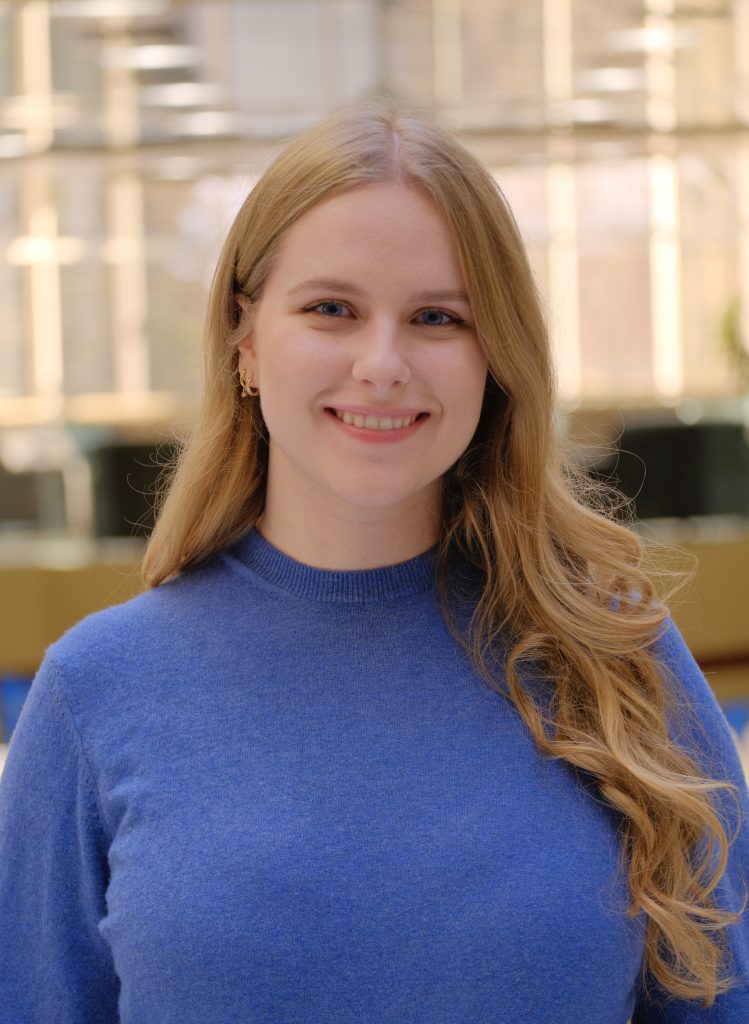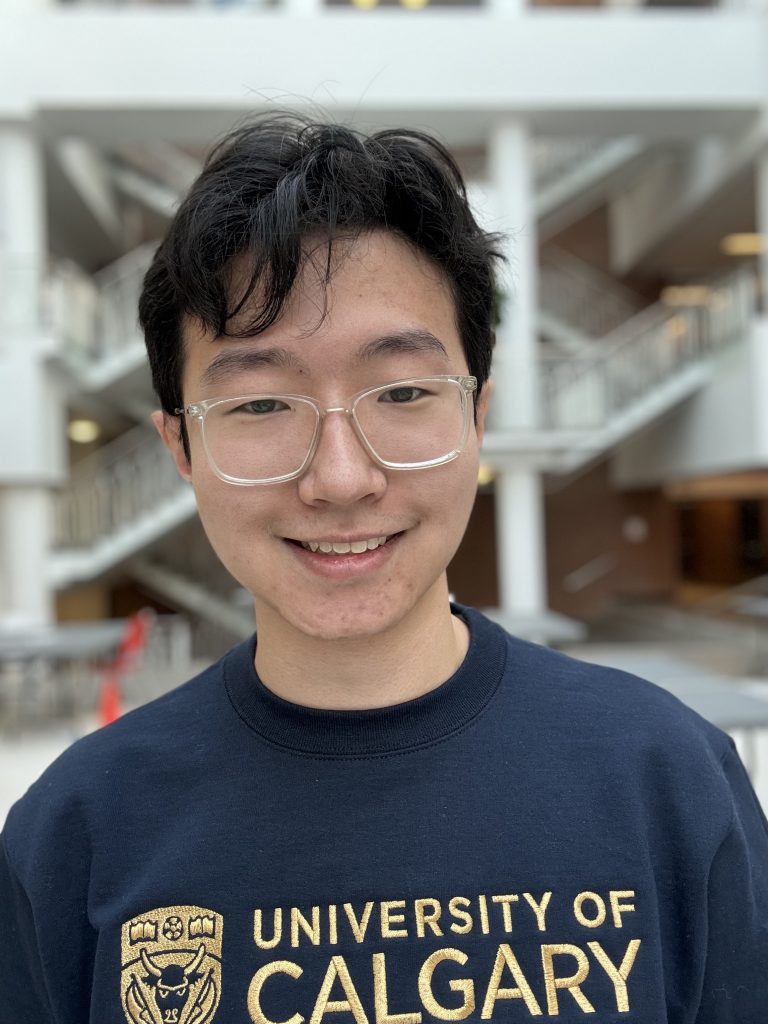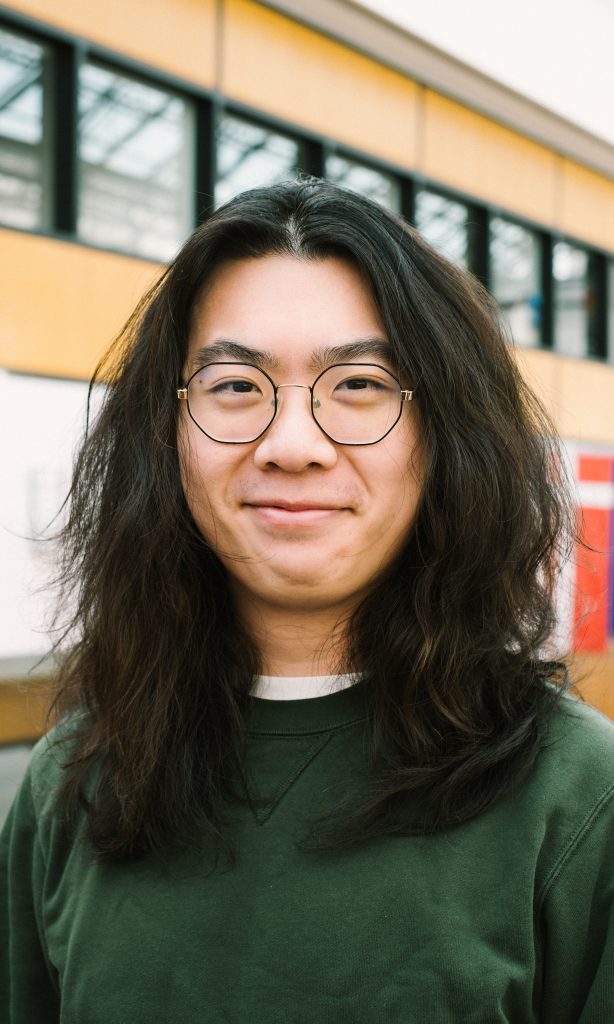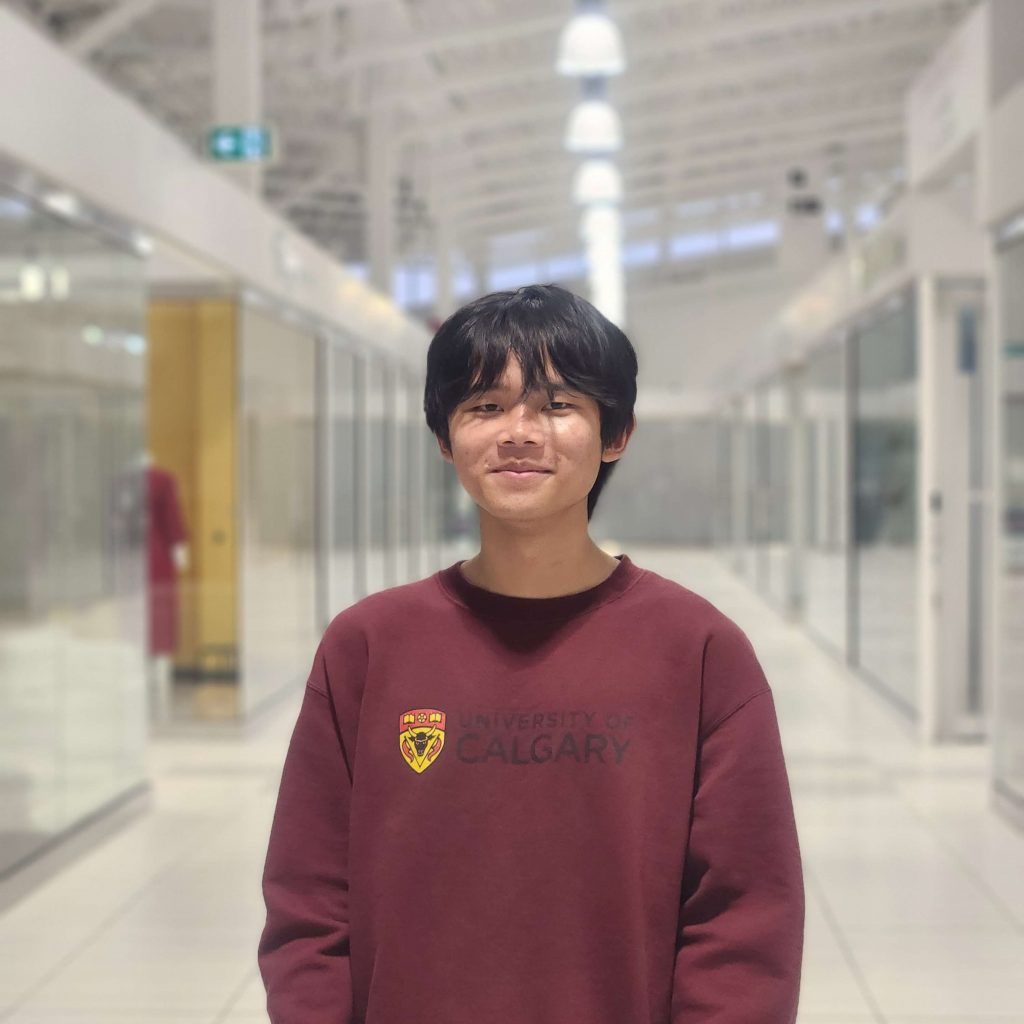2024 SU general election: Faculty of Science representatives
In this year’s Students’ Union (SU) general election, five candidates are running for the Faculty of Science representative but only three candidates will be successful. Along with the responsibilities outlined for all Students’ Legislative Council (SLC) members, faculty representatives are accountable for responsibilities particular to their role including: Reporting to students of their faculty the policies, positions and programs of the Students’ Union (SU), reporting to their faculty itself (like Dean’s Council) the policies, positions and programs of the SU, representing student constituents of their faculty at SLC, representing student constituents of their faculty on university committees and reporting to the VP Academic on matters of academic importance within their faculty.
GABRIELA DZIEGIELEWSKA

Gabriela Dziegielewska, a fifth-year combined chemistry and geophysics, is a candidate for the Faculty of Science representative position.
In her interview with the Gauntlet, Dziegielewska talked more about her platform consisting of addressing accessibility, affordability, research and student empowerment.
Dziegielewska highlighted advocating for a standardized and flexible policy and the introduction of the five flex days of penalty-free extensions for students.
“To my understanding currently, the Faculty of Science teaching and learning committee have been introduced to the [five-day flex] policy through one of the current representatives. I don’t know the specifics of that, but I would like to get on that committee and see it through, make sure that it doesn’t just get stuck in the committee as this everlasting problem [and it’s] not [an] administrative burden on students [and it] does not leave it to the discretion of the prof to grant it,” said Dziegielewska.
The second is applying for a quality money fund or grant for student researchers.
“The goal of the fund would pay students for research that they do as part of their credit research courses and potentially to be a top-up for students who are doing summer projects whose other funding is not enough to, say, cover their cost of living.”
Finally, the third point is to establish the Faculty of Science Students Association. She stresses the limited interconnectedness and the socialization opportunities within the faculty.
“It would be a good opportunity to create an organization that would represent all faculty of science students through essentially like a club, somewhat modelled off like the FASA or the ESS to heighten the sense of community across the faculty through events, or academic support depending on what people would want to get out of it as well.”
Overall, Dziegielewska’s understanding of the role is evident and her platform is strong and actionable.
KAZI SIFAT
Kazi Sifat did not interview with the Gauntlet, so here’s what students can expect from him based on his platform. The four key initiatives that Sifat wants to follow are standardizing deadlines, optional assessments and bonus marks, expanding platforms for research engagement and collaboration and administering what he calls a “Dino’s Grand Summit Olympiad”.
In order to help alleviate confusion among students in the faculty, Sifat is hoping to implement a standardized deadline for all projects and assignments to be due at the end of the day. He also hopes to advocate for bonus mark questions and optional assessments in courses to incentivize students in academic exploration.
In terms of expanding platforms, Sifat is looking to boost engagement with researchers, facilitate access to potential research opportunities and promote dialogue around topics and areas of interest. Lastly, he proposes that the Faculty of Science should administer a grand Olympiad of sorts that rewards students on scientific merit with monetary prizes, funded by students for students. Though, we don’t know the specifics behind this event and how he plans to incentivize student donations.
Sifat’s platform focuses solely on academics and doesn’t touch on points such as affordability or student representation, much like his competitors have. Therefore, his platform falls short in comparison to the other candidates.
BEN SHI

Ben Shi is a third-year neuroscience student running for the Science Faculty Representative position. Shi served as a representative for the past year and organized the Science Breakfast and Club Fair, the Science Internship Alumni Showcase, incorporated flexible deadline policies into the Teaching and Learning Committee (TLC) plan, and advocated for student support within PASS sessions.
This year, Shi aims to build from his previous platform work, this time using advocacy and developing more events that serve science students. He believes that his past experience in the position makes him a deserving candidate this year.
“I think I would have a lot of institutional memory in order to aid my fellow representatives,” said Shi. “I think that is an important part, because we wouldn’t have to necessarily start from the ground up when it comes to hosting initiatives and making the same mistakes.”
Shi aims to continue his previous advocacy work for flexible deadlines.
“I’ve [collected] the voices of over 400 signed students, of 8 professors to hear the perspectives on the sides of those who implement these policies and those who are affected by these. I brought [this] up to the TLC, successfully convincing them to kind of put that as a priority within their working plan.”
He also aims to include more experiential learning opportunities for students to provide opportunities to achieve outside an academic setting.
“I think there are many barriers to experiential learning within science,” said Shi. “An example being just like the consecutive eight month requirement for the science internship program, and also the fact that with the science internship program, you’re not really allowed to take classes while doing it.
Given his track record of accomplishment in this position, Shi is a capable candidate whose goals this year are both tangible and practical.
JAYDEN TRAN

Jayden Tran is a fourth-year student and a candidate for the Faculty of Science representative position outlined his platform in an interview with the Gauntlet.
Tran, although stating that he does not fully understand the logistics and power a science representative holds, stressed the skills he gained in his experience through heavy involvement with the Coalition of Alberta Post Secondary Students (CAPS). This bleeds into his first platform point of establishing a faculty association for the sciences for academic, professional and social purposes.
“Establishing an interdepartmental association could help [create] networking events and social events to establish culture. If you want to have [any substantial] political [student] activism in the school, we need culture, solidarity between students,” said Tran.
Tran could not recall the events, scholarships, networking and career development opportunities offered by the Faculty of Science when asked about how they would differ from those provided by establishing a faculty association for the sciences. He then stated that the key differences would lie in the emphasis on the social aspects.
“I think that this is important because we don’t really have a school culture at U of C”, said Tran.
In regards to their second platform point of collaborating specifically with the VP external and the governmental relations committee to shed light on budget cuts. His strategy for this point involves more student-led strikes.
“With effective strikes, this creates a logistical issue for the government which forces them to listen to our demands.”
Tran’s last platform point is advocating for better grading schemes. They suggest increasing assignments that encourage students to engage with course material actively.
Overall, Tran’s points are actionable and showcase his knowledge of the problems present in their faculty.
EMMANUEL TRINIDAD

Emmanuel Trinidad is a second-year computer science student running for the Faculty of Science representative position.
Trinidad aims to expand PASS Sessions so that retake rates are reduced to open more seats within the faculty.
“We can attempt to alleviate the fail rate in order for people to end up passing [so] they’ll have a lot more confidence in the kind of academic performance in these classes,” said Trinidad.
Given that the Ahead of Tomorrow plan by the university aims to increase enrollment over the next six years, Trinidad aims to send a Quality Money application to increase standby spaces for science students.
“I also plan to increase study spaces or end up revising study spaces that are seemingly outdated,” said Trinidad. “Outside of science, there’s more outlets, better Wi-Fi [and] it would be nice if we had more updated study spaces. Some students don’t end up studying in certain places because they’re just underutilized because they’re not as up to date, they’re sometimes dirty, sometimes they’re just really hard to reach.”
Trinidad also aims to break up the length of science internships from eight months to four. He believes this will increase accessibility for students. As part of his plan to increase opportunities outside of academics for students, Trinidad will establish a centralized platform for students to search for research opportunities.
Though Trinidad is new to the SU, his ideas are actionable, practical and his passion for making change in the faculty is evident.
All undergraduate students in the Faculty of Science can vote YES or NO on their ballot for up to three candidates for FACULTY REPRESENTATIVE or ABSTAIN from voting.
